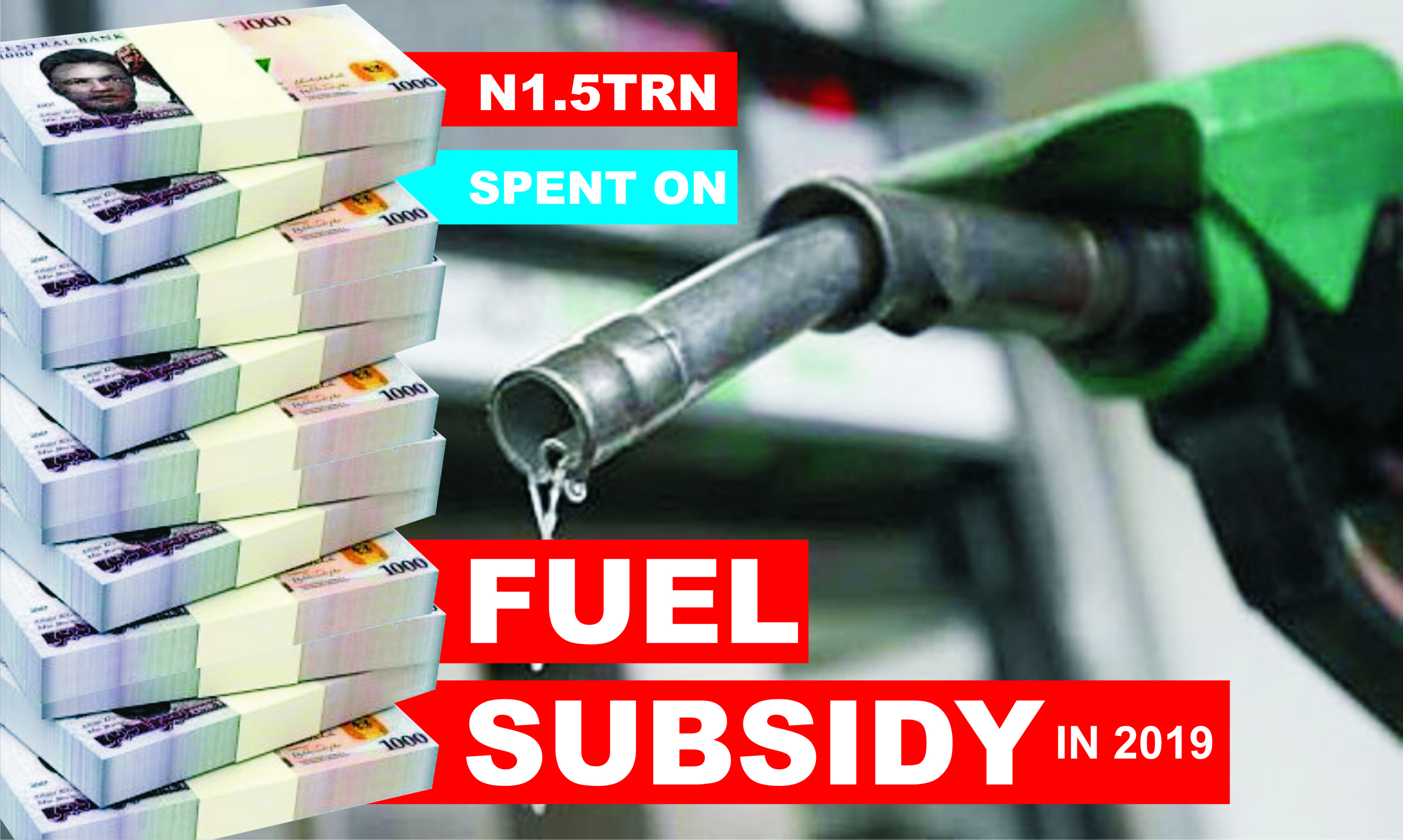Business
Fuel Subsidy: Nigeria Loses Trillions Of Infrastructure Development – NNPCL

The Nigerian National Petroleum Company Limited (NNPCL) has said Nigerians have missed enormous infrastructure development due to the protracted fuel subsidy regime in the country.
The NNPCL disclosed that the amount spent on fuel subsidy payment could provide 7,500km of road network at N400 million per kilometre and 37 well-equipped 120 Beds Tertiary Health Centres at N32 billion per hospital annually.
Senior Business Advisor to the GCEO, NNPCL, Mr Lawal Musa, disclosed this in Abuja at a joint National Association of Nigerian Students (NANS)/Civil Society Organisations (CSOs) sensitisation workshop on the NNPCL Operations.
Musa, in a presentation entitled “Petroleum Industry Act (PIA) and the Nigerian Economy’’, said the Federal Government spent as much as N4.8 trillion annually on fuel subsidy at the expense of the wellbeing of Nigerians.
In an analysis of the opportunity cost of the subsidy spending, he said deregulation could deliver 500,000 new houses and education and skill up of two million Nigerian students, among others.
He said it could deliver N12 trillion in four years to Nigeria while annual Premium Motor Spirit (PMS) under recovery would escalate to N3 trillion.
He said the cost of fuel subsidy outweighed the direct benefits particularly to the masses.
He further said deregulation could provide additional 27,000 megawatts of electricity to Nigerians and build and equip 2,400 hospitals in 774 LGAs.
“Nigeria is the largest producer of crude oil in Africa, possessing 28 per cent of Africa’s reserve, with petroleum contributing significantly to the country’s economy.
“The benefits derived have over the years been eroded due to the amount paid on subsidy, a regime has been fuelling the vicious circle of poverty in the country”, he said.
Musa explained that the PMS (fuel) was sold lowest price in Nigeria among most West African countries in spite of the average cost of $2.7 per litre globally, which amounted to up N570 per litre.
According to him, verifiable PMS demand data is critical to National planning and energy security.
In an overview of the PIA and New NNPCL structure, Mrs Oritsemeyiwa Eyesan, the Chief Strategy and Sustainability Officer, NNPCL, said the new entity was incorporated as a commercial company to be run like any other private company in the country, following the provision of the PIA 2021.
Eyesan, represented by Mr Vincent Ogbu, her Business Advisor said NNPCL’s activities were guided by three core values namely integrity, excellence and sustainability.
She explained that the signing of PIA into law overhauled the institutional, regulatory and fiscal framework for the Nigerian petroleum industry and provided structured approach for managing host community development and investments.
She further said significantly, the PIA mandated incorporation of old NNPC and established NNPCL as a fully commercial entity.
“Under the Act, NNPCL is to conduct affairs without recourse to government fund. The new NNPCL is being owned by 200 million Nigerians with Ministries of Finance and Petroleum Resources as major shareholders”, she said.
Earlier, the NNPCL Group Chief Communications Officer, Garbadeen Muhammad, said the NNPC was engaging with students as critical stakeholders in the new organisation which belonged to over 200 million Nigerians including the Nigerian students.
Muhammad said the engagement which would be done annually, was aimed to enlighten the students and CSOs on the NNPCL as a new entity registered by the Corporate Affairs Commission under the Company and Allied Matters Act.
Also speaking, the National President of NANS, Usman Barambu, thanked the NNPC for the enlightenment workshop which had exposed the students on the new structure and operations of the oil company.
Barambu urged the company to ensure availability of fuel and tackle fuel scarcity in the country as well as opening of opportunities for ordinary Nigerian graduates to gain employment in the company.
Chief Convener, Civil Society for Justice and Equity, Mr Olayemi Success, called for the removal of the fuel subsidy and urged government to channel the money towards improving the education sector.
Business
NCDMB, Dangote Refinery Unveil JTC On Deepening Local Content
Business
Food Security: NDDC Pays Counterpart Fund For LIFE-ND Project
Business
Replace Nipa Palms With Mangroove In Ogoni, Group Urges FG, HYPREP
-
Politics1 day ago
Keyamo Inaugurates Ganduje As FAAN Board Chair
-
News1 day ago
Demonstrate Commitment In Improving Host Communities, Ibas Tells Corps Members
-

 Politics1 day ago
Politics1 day agoReps Constitution Review Committee Holds Zonal Hearing For Rivers, C’River, Akwa Ibom In Calabar
-
Opinion1 day ago
Is Nigeria Democratic Nation?
-

 News21 hours ago
News21 hours agoI’m Committed To Community Dev – Ajinwo
-

 News1 day ago
News1 day ago2027: I Stand With Southern Presidency -Ortom
-
Rivers1 day ago
HOS Tasks Rural Dwellers On RAAMP … As Project Sensitization Team Visit Degema, AKULGA
-

 News24 hours ago
News24 hours agoSenate Replaces Natasha As Committee Chairman

